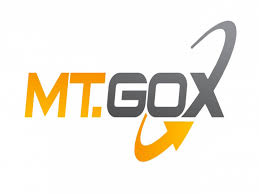
-
REINING
IN THE WILD EAST
More than five years ago, Japanese people trust in Bitcoin was rocked as users of Mt. Gox lost 650,000 bitcoins, this event ultimately led to closing the exchange.
 Today wide know event and it wasn't something unique or isolated problem.
Japan as one of the most important centers of cryptocurrencies has a log
history
with exchanges and to all of it is bright. Also other exages have been
targeted
and fell as victims to some of the biggest hacks like Mt. Gox and Coincheck,
total
lost amount of Bitcoins is estimated in around 1 billion., This is quite
logical as Mt. Gox in 2015 processed 70% of world bitcoin transactions, as
such
they made an attractive target to hackers. As market was young they didnt
put
security and policies on needed level. Consequence of that was that coins
were stolen from their hot wallet.
Today wide know event and it wasn't something unique or isolated problem.
Japan as one of the most important centers of cryptocurrencies has a log
history
with exchanges and to all of it is bright. Also other exages have been
targeted
and fell as victims to some of the biggest hacks like Mt. Gox and Coincheck,
total
lost amount of Bitcoins is estimated in around 1 billion., This is quite
logical as Mt. Gox in 2015 processed 70% of world bitcoin transactions, as
such
they made an attractive target to hackers. As market was young they didnt
put
security and policies on needed level. Consequence of that was that coins
were stolen from their hot wallet.
These problems slowed down Japan’s dreams of becoming The New Heart of Bitcoin. And Japan needed to take steps and regulating this Wild East of exchanges as a consequence trust in cryptocurrencies has been mostly restored.
-
Japan’s regulation experience
The first country to regulate cryptocurrency exchanges was Japan in 2017. Japan’s Financial Services Agency (FSA) took in account all that happened and developed laws cryptocurrency exchanges. Essentially, the FSA analysed Mt. Gox and other problems were bitcoins were stolen and set regulations in place in such a way to protect user and prevent future instances of hacks, in that light we can see that regulations are a good thing as it will build trust in blockchain and Bitcoin. rest of world will monitor on Japan and use their experience to determine the best practices.
-
Japan FSA asks for full compliance
 At the start of 2018, Coincheck lost more than 500 million NEX (XEM) coins.
FSA investigated the case and saw many of the problems in security measures.
Hack happened in a way that hacker inserted malware and then stole private
keys and then made transfers to his addresses, only affected were hot
wallets and digital folders.
At the start of 2018, Coincheck lost more than 500 million NEX (XEM) coins.
FSA investigated the case and saw many of the problems in security measures.
Hack happened in a way that hacker inserted malware and then stole private
keys and then made transfers to his addresses, only affected were hot
wallets and digital folders.
Resume given by FSA was that Coincheck didn't have any mechanisms to deal with money laundering or terrorismfunding. This sent a warning signal and other exchanges were checked as well and 9 were punished so similar problems. FSA ordered them to make improvements in preventing the criminal use of digital money.
“It’s been long said that cryptocurrencies are a solid system but cryptocurrency exchanges are not,” said Makoto Sakuma. Suituatin in Japan is such that FSA details check compliance of 32 of the country’s exchanges. Only 16 operate with full licence and rest operate under provisional authorization.
-
Privacy coins bans
From start of cryptocurrencies anonymity was a big thing and many users see that part as very attractive for many reasons and a lot of them aren't criminal in its nature so 2018 ban order to exchanes to remove all coins that are considered private sparked a big discussion around the balance between personal freedom and the needs of law enforcement.
Forbined currencies by FSA are Monero (XMR), Zcash (ZEC) and Dash (DASH). As the are associated with money laundering, drug dealing... The FSA targeted Monero, whos community consider it the only true privacy coin. However, it is commonly used by crypto-jackers, it became interesting when in January 2018 when accounts were detected by which North Korea may be using for its funding.
-
Regulation Benefits
So far FSA's regulations are giving results and money exchanges have submitted more than 700 Suspicious Transaction Reports (STRs). Japan was planning to use a G20 meeting in 2018 and to call for combined regulatory efforts so combat be more effective and to stop the use of cryptocurrencies in money laundering. However, the G20 rejected the motion for global regulation because cryptocurrencies are still less than 1% of the world economy.
Japan has taken the lead and teats cryptocurrencies as regular currency and therefore has instituting rational regulations that are building trust in the technology and to build the foundation for its future mainstream adoption.